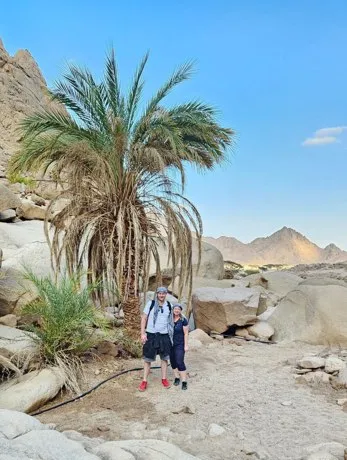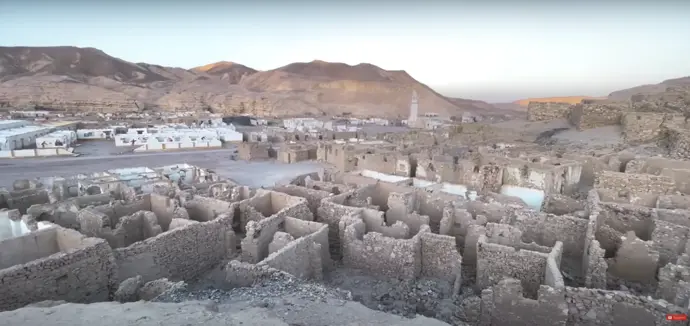Recent News
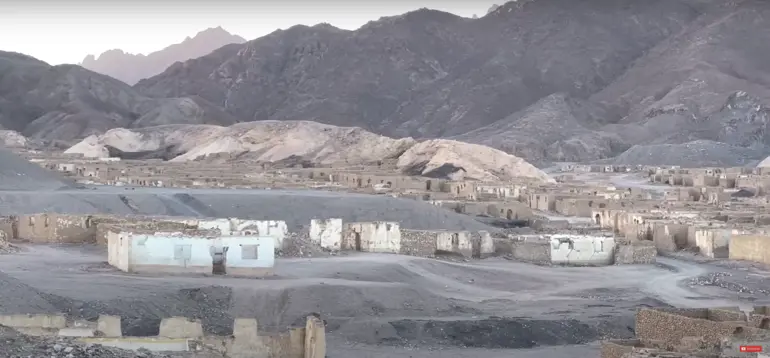
1
Jan
Umm Al-Huwaytat Village: The Village of Ghosts and Legends
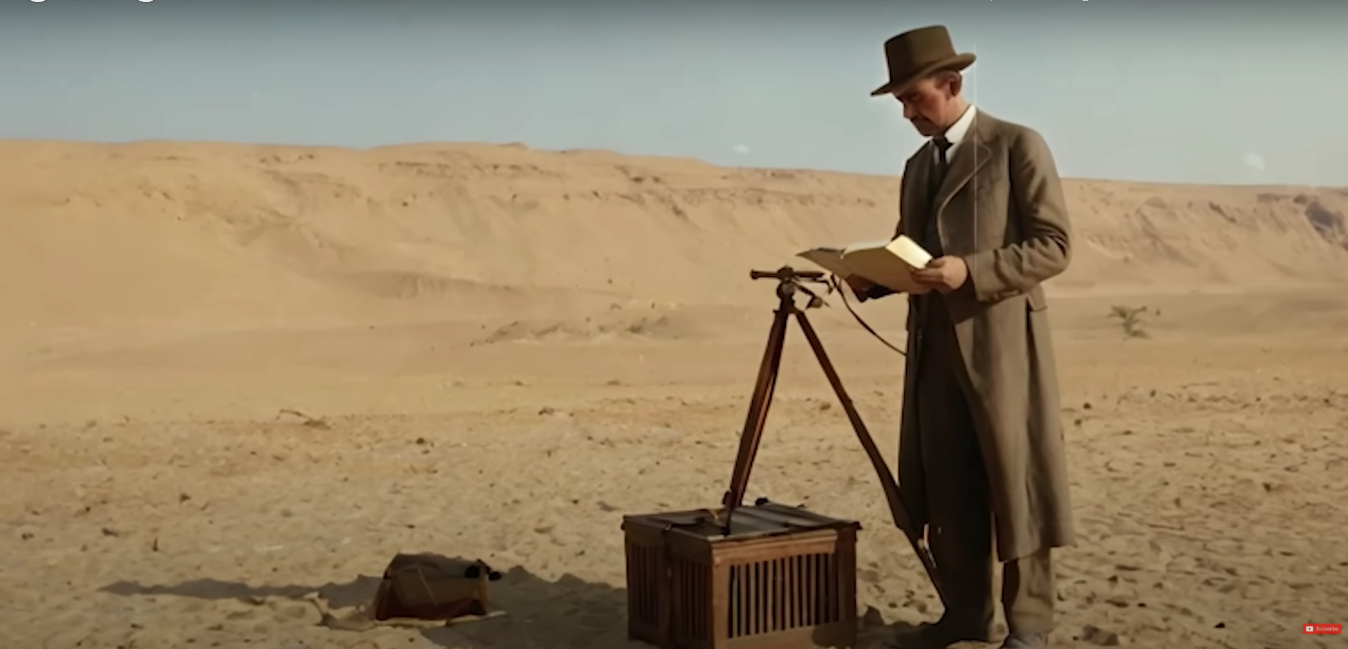 Umm Al-Huwaytat
Village: The Village of Ghosts and Legends
Umm Al-Huwaytat
Village: The Village of Ghosts and Legends
Did you know that the
population of Umm Al-Huwaytat village near Safaga, in Egypt's Red Sea
Governorate, is zero? In this article, we will explore the mysterious history
of this abandoned village, uncover why it became uninhabited, and share one of
the most famous ghost stories surrounding it. Along the way, you'll discover
historical details, captivating facts, and intriguing images of this ghostly
destination.
Location and
Historical Significance of Umm Al-Huwaytat
Umm Al-Huwaytat is
located approximately 30 kilometers from the city of Safaga in the Red Sea
region of Egypt. Its story begins in 1898 during the British occupation of
Egypt when the British controlled much of the country. A British scientist
named Mr. Andy, known for his expertise in lead mining, played a key role in
its discovery.
During his exploration
of Safaga’s desert, Mr. Andy stumbled upon a peculiar mountainous area.
Intrigued, he ordered his team to excavate the site in search of lead. However,
instead of lead, they found an abundance of phosphate – a valuable mineral at the
time.
After notifying the
British government of this accidental discovery, he received immediate approval
to mine phosphate from the area. By 1902, mining operations were in full swing,
with 3,000 Egyptian workers and several British engineers involved.
The Rise of Life in
the Village
To support mining
activities, the British administration built housing for workers and engineers
near the phosphate mines. As time passed, workers were allowed to bring their
families to the area, leading to the establishment of schools, mosques, churches,
markets, and a hospital. The population grew rapidly, reaching 16,000 people by
1956.
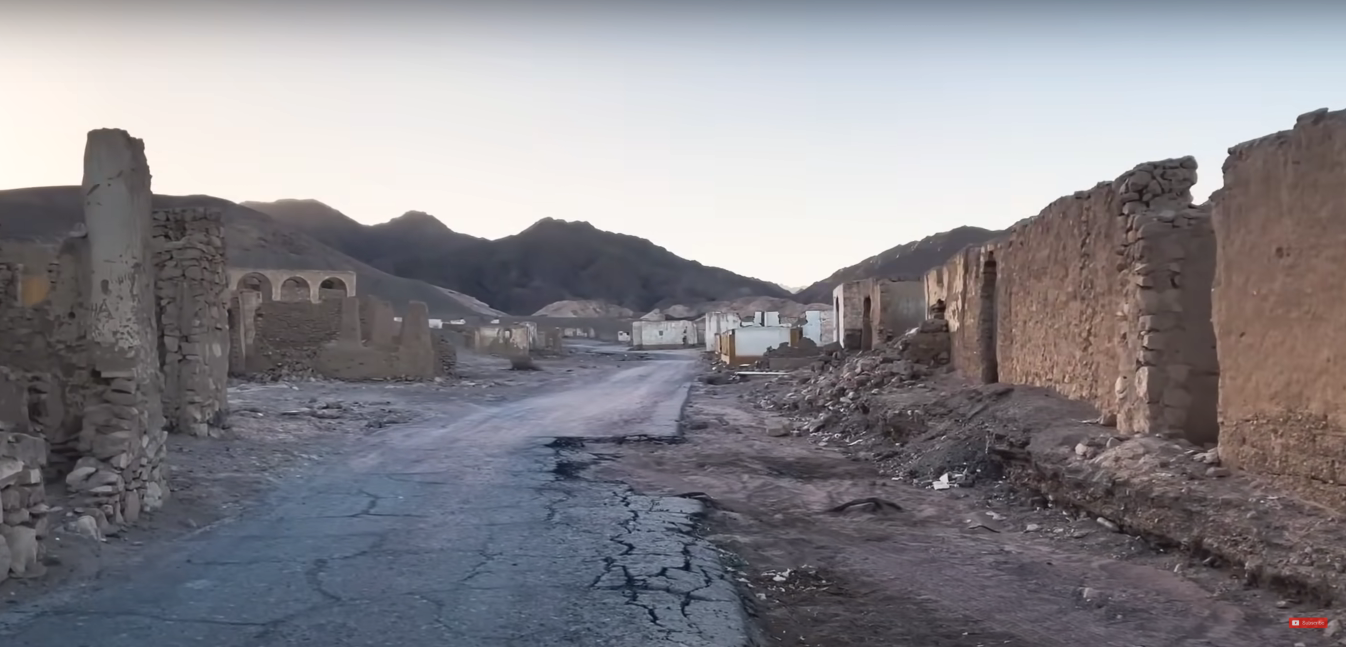 Turning Points in
the Village’s History
Turning Points in
the Village’s History
After Egypt regained
control following the departure of the British, the village continued to
operate under Egyptian administration. However, in 1998, during the presidency
of Hosni Mubarak, the government decided to relocate the residents and
establish a new settlement called “New Umm Al-Huwaytat.” The original village
was abandoned, and only its ruins remain today.
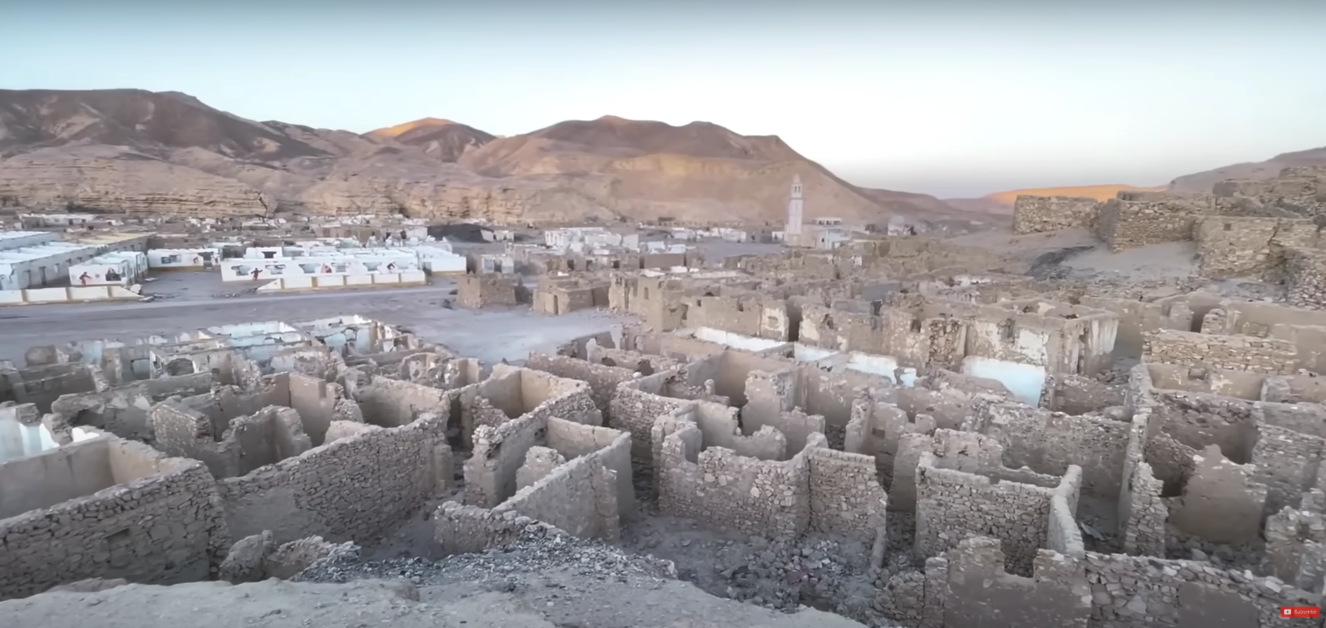 Why Is It Called
the Village of Ghosts?
Why Is It Called
the Village of Ghosts?
Over time, Umm
Al-Huwaytat became associated with eerie legends and ghostly tales. One of the
most chilling stories involves the collapse of a mine, which trapped and killed
workers inside. Another famous tale dates back to 1999, when a mining company
sent a team to retrieve abandoned equipment from the deserted village.
An engineer named
Mohamed recounted seeing a woman dressed in black sitting by the roadside. When
he and his driver approached her, she vanished. Later, while inspecting the
equipment, they heard unsettling noises – voices, children laughing, and women
talking – even though the village was completely deserted.
The situation became
so frightening that they decided to leave immediately. Unfortunately, their
vehicle broke down. As they waited in fear, stones were hurled at their car,
yet no one was visible. Eventually, they managed to restart the car and flee.
As they drove away, they saw the woman again, but this time, she appeared as a
skeleton.
Visiting Umm
Al-Huwaytat Today
For adventurous
travelers, Umm Al-Huwaytat offers a haunting glimpse into the past. Visitors
can explore the remains of abandoned homes, schools, and mosques that once
thrived with life. The village also features deep mining shafts, some extending
up to 50 meters underground. However, for safety reasons, it is strongly
advised not to enter these mines.
Despite its current
desolate state, Umm Al-Huwaytat holds historical significance as a once-vital
mining village that contributed greatly to the economy through its phosphate
production.
Visit Umm
Al-Huwaytat with Luxreisen
At Luxreisen,
we offer an exclusive guided tour to explore the mysterious village of Umm
Al-Huwaytat. Accompanied by an expert guide, you’ll uncover its fascinating
history, hear captivating stories, and experience the remnants of this unique
site up close.
For more details and to book your adventure, visit the following link:
Discover Umm Al-Huwaytat with Luxreisen


__thumb.webp)

